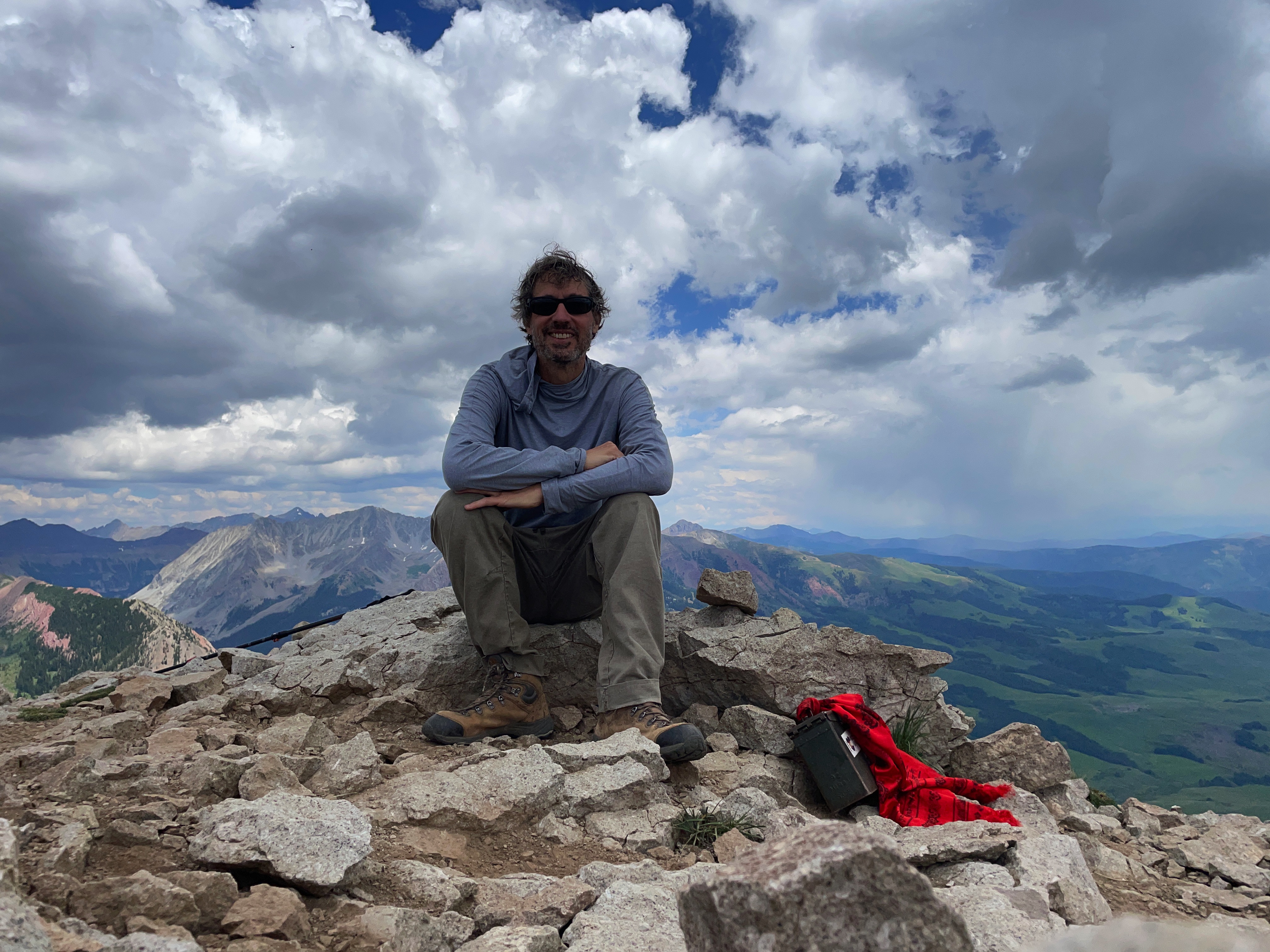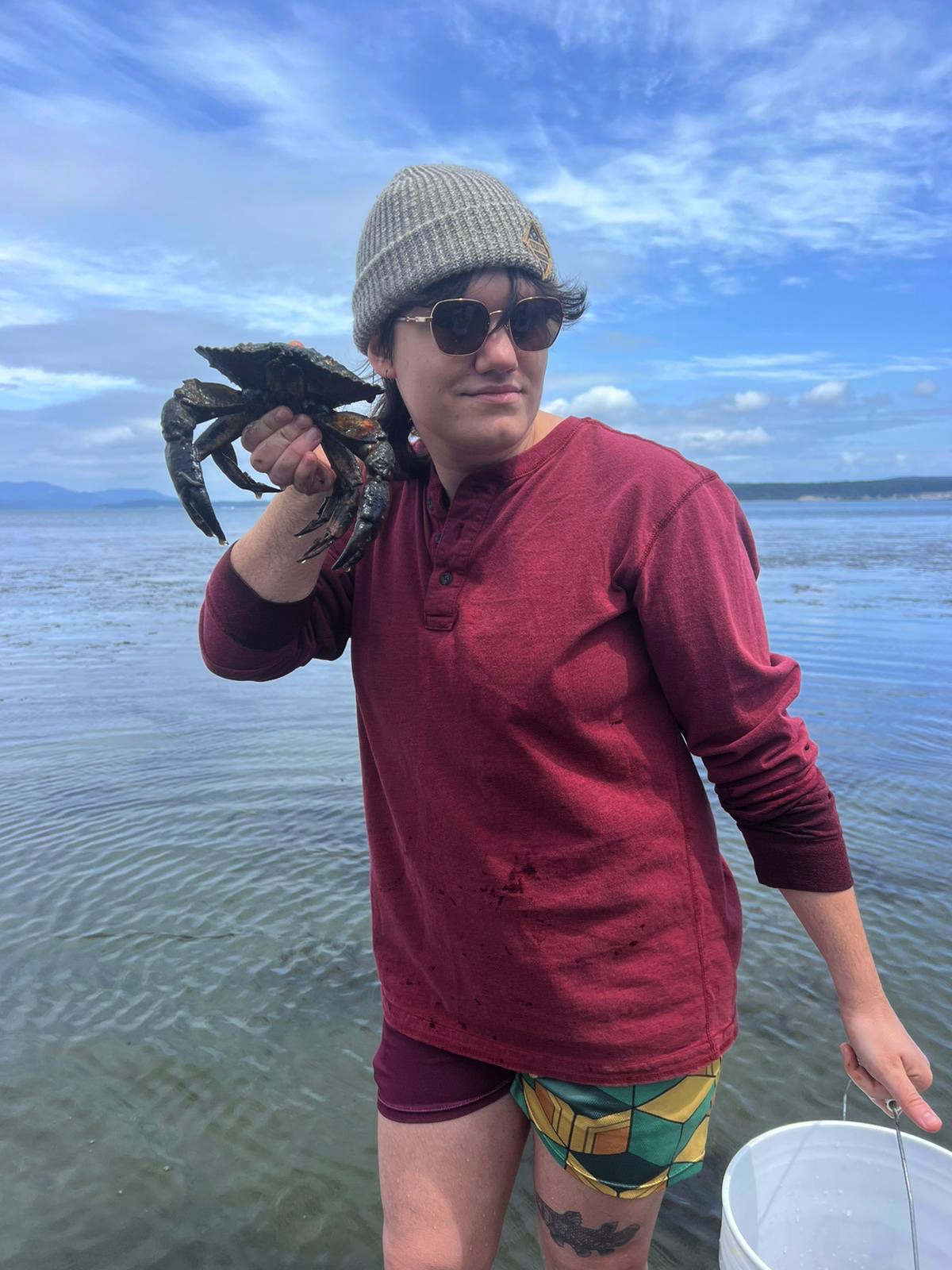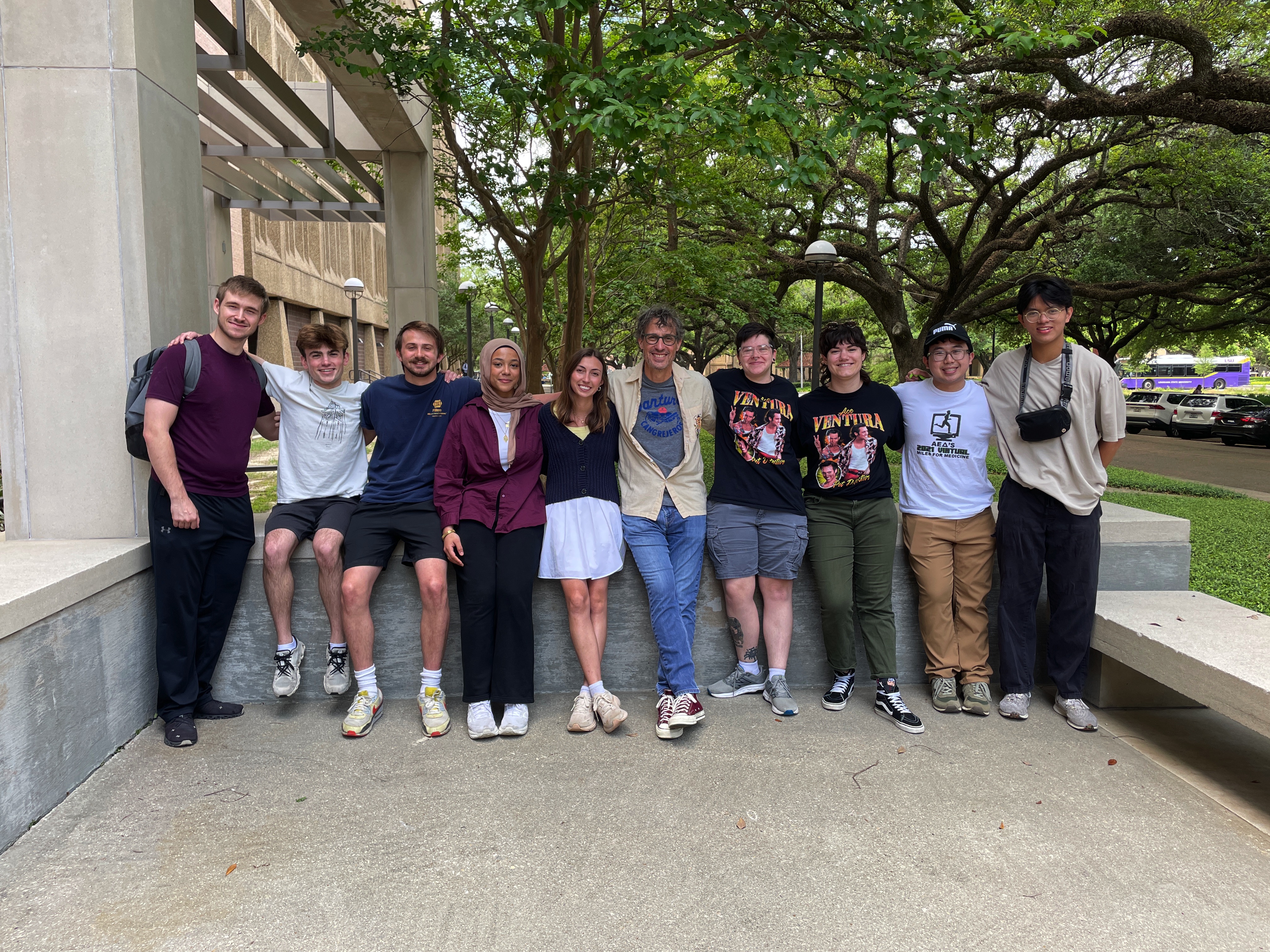Post-doctoral Researchers
Michael Garvey (2018-2022)
Michael received his Ph.D. in Entomology at Purdue University in May of 2018 prior to joining the Elderd Lab. Michael studied the effects of induced plant defenses on disease transmission in Spodoptera frugiperda, the effects of scale on pathogen transmission, the eco-evolutionary dynamics of host-pathogen interactions. Currently, Michael works at the USDA in Arizona.
Robert Richards (co-advised w/ Tad Dallas) (2021-2022)
Robbie received his Ph.D. from the Odum School of Ecology at the University of Georgia. Robbie worked on model complexity and model structure as related to the current COVID-19 pandemic as well as on a number of other disease modeling projects. Robbie moved on to a postion at Georgia Tech focused on teaching.
Forrest Dillemuth (2013-2017)
Forrest studied the effects of climate change on host-pathogen interactions using an insect host and a species-specific baculovirus. In this system, the host must consume the virus to become infected. The host also consumes the leaf tissue on which the virus resides. He also worked on a number of other project including: 1) the effects of plant genetic diversity on host-pathogen transmission dynamics in this tri-trophic system; and 2) interactions between cannibalism and disease transmission.
Ben Van Allen (2014-2016)
Ben’s work focused on various aspects of population and disease dynamics. He examined how a tri-trophic interaction between a pathogen, an herbivore host, and a plant on which the host feeds affects the spatial spread of the pathogen in the environment. Ben also investigated how cannibalism affects disease transmission in the same insect host-pathogen system. Currently, Ben is a senior ecologist at Tierra Data, Inc. in San Diego, California.
Miquel Acevedo (2013-2014)
Miguel worked on constructing mechanistic models of disease transmission. His work focused on examining the influence of plant defenses on diffusion rates of fall armyworm (Spodoptera frugiperda) larvae. He also conducted a meta-analysis of the virulence-transmission tradeoff and used Bayesian techniques to fit data to epidemic models. Currently, Miguel is an associate professor at the University of Florida.
James Reilly (2009-2011)
James worked on a number of different projects related to epizootic dynamics. He developed a model examining the use of baculoviruses as a biocontrol agent and how it affects gypsy moth population dynamics. The field component of his work examined how climate change will affect host-pathogen interactions. Currently, James is a research analyst with Rachael Winfree at Rutgers University.
Maynard Milks (2009-2011)
Maynard examined how plant induced defenses and systemic acquired responses affected baculovirus disease transmission in the cabbage looper (Trichoplusia ni). Currently, Maynard is working in British Columbia.
Graduate Students
Kale Rougeau (2023-2025), Masters
Kale examined how resource quality impacts disease transmission and rates of cannibalism using the fall armyworm, Spodoptera frugiperda, and its lethal baculovirus. Kale used some of their work to construct a nice data nugget to be used in the classroom. Currently, Kale is working as an Environmental Scientist here in Louisana.
Scott Grimmell (2018-2024), Ph.D.
Scott worked on a variety of project focused on host-pathogen dynamics. Scott examined host-pathogen coevolutionary dynamics and how global climate change will affect both virulence and transmission using the fall armyworm, Spodoptera frugiperda, and its lethal baculovirus. His research also looked at the difference in plant pathogen infection rates in Plantago lanceolata across the native and non-native range of this cosmopolitan species. Scott is currently working at SUNY Stony Brook as an academic advisor.
Jason Janeaux (2018-2024), Ph.D.
Jason's research interest encompassed examining disease transmission across sexual contact networks. In particular, Jason's work focused on core groups in disease outbreaks - who is in the core group of individuals and how best to direct public health efforts to halt the spread of a disease through the network. He's worked relied on the use of network models to understand transmission dynamics.
Nathaniel Haulk (2021-2023), Masters
Nathaniel focused on how to use machine learning to count cells in photographs taken under a light microscope. This is a relatively tedious and time-consuming task, which Nathaniel could automate using machine learning. After graduating, he worked as research specialist in entomology at the University of Tennessee.
Matthew Faldyn (2013-2019), Ph.D.
Matt's research work examined the effects of climate change on monarch butterflies (Danaus plexippus) and their plant resources. Matt's work showed that a common garden variety of milkweed (Asclepias curassavica) becomes an ecological trap as temperatures increase. Matt was a lecturer at Claremont McKenna after completing his Ph.D. Since then, Matt has completed his nursing degree and is now doing incredible work as a nurse in Austin.
Andrew Flick (2012-2018), Ph.D.
Andrew examined the indirect effects of predators on host-pathogen interactions where the predators prey on infected hosts or potential hosts. Using both a meta-analysis and experimental data, Andrew's work sheds light on the importance of predation and modes of predation for understanding how a pathogen spreads amongst hosts from a community ecology perspective. Andrew is currently working at the Evolutionary Studies Institute at Vanderbilt.
Adriana Dantin (2009-2012), Masters
Adriana completed a course work based Masters degree. After graduating, Adriana started working in the pharmaceutical industry.
Lab Managers
Kale Rougeau, Lucy Aucoin, Lucy Detweiller, and Joy Senn
Undergraduate Students
Aaron Ackley, Joseph Aguda, Zoran Allen, Lucy AuCoin, Collin Aupied, Olivia Barry, Richa Banthia, Madeline Broyles, Kale Costanza, Logan Chapman, David Clark, Matthew Darce, Lucy Detweiler, Kacie Dillon, Sophia Dworak, Richard Elfert, Ben Erdozain, Jackson Erny, Michael Fitzpatrick, Jessica Francisco, Peyton Graham, Alexandra Green, Kayla Guillot, Jacy Haynes, Ethan Ho, Salma Ibrahim, Peter Issa, Kaden Keller, Alan Le, Schyler Lee, Paige Long, Tatum Lyles, Kyle McCauley, McCayn McDaniel, Timothy Montet, Hollie Payne, Laila Polk, Lauri Syori, Miriam Tariq, Logan Wareham, William Vial, Rush Williams.


